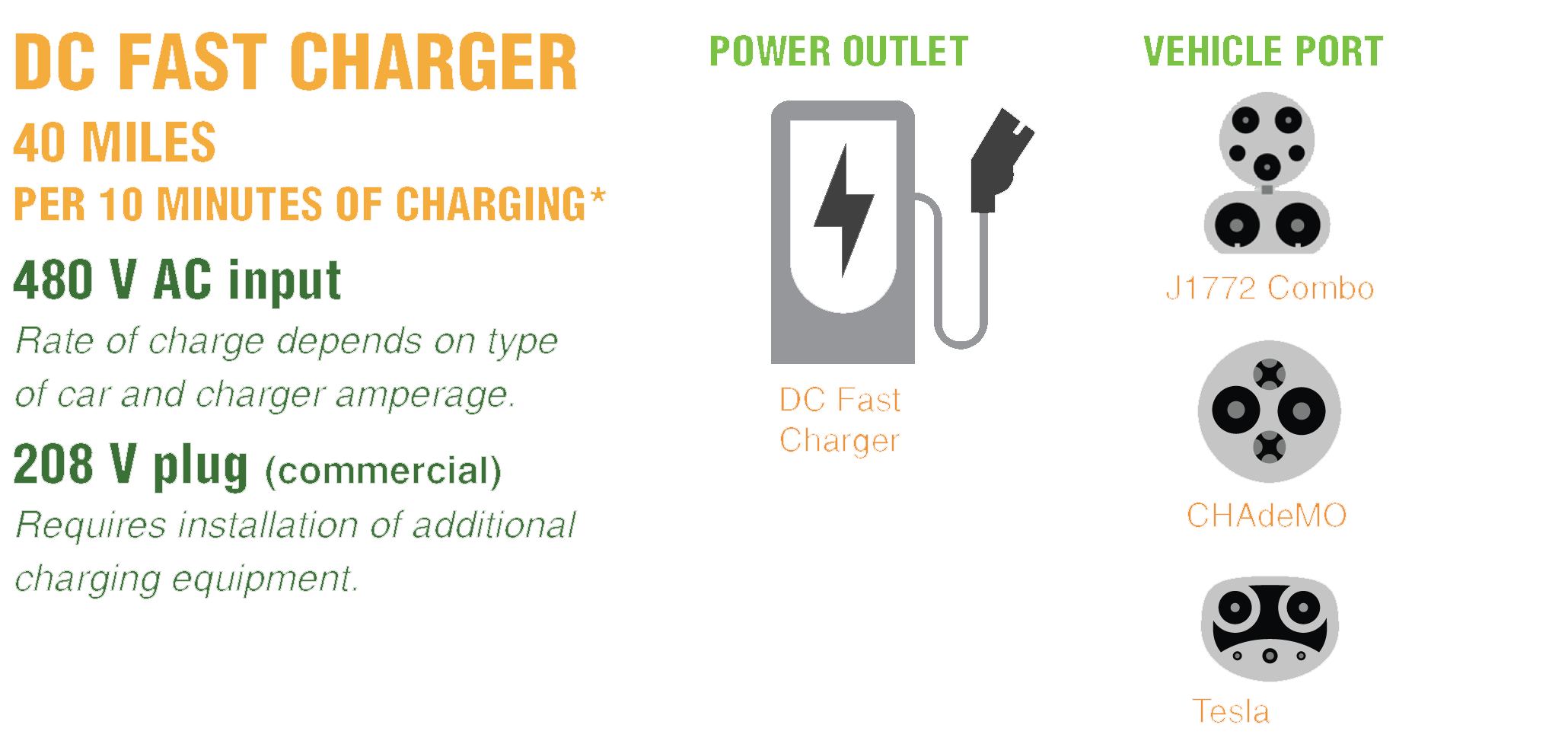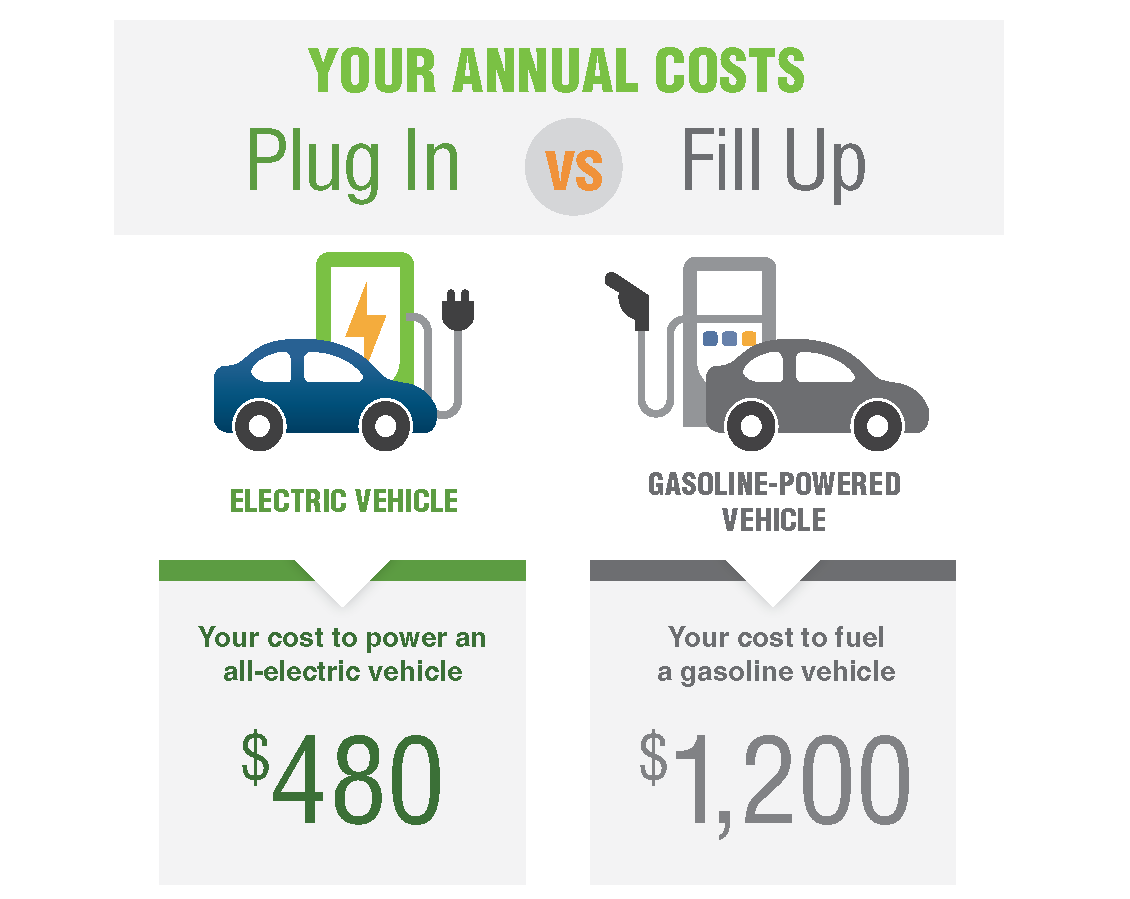
It’s time to get CHARGED UP about Electric Vehicles!
Electric Vehicles aren’t just the future any more. They are here and they are now…
Whether you’re a saving seeker, technology curious, or a green champion, electric vehicles can provide what you are looking for, and, they are fun to drive.
Why Should I Consider an Electric Vehicle?
With more positives to owning an Electric Vehicle (EV), this could be the year you go electric. More models, improved performance and the fact they are FUN to drive are all good reasons to make the switch. Electric vehicles have lower operating costs, lower maintenance costs, and many models are still eligible for tax credits. Even though EVs have a higher initial vehicle cost, they have a lower cost of ownership over the lifetime of the vehicle. As the charging network in America grows, EVs are not only becoming more affordable, but also more convenient to charge:
- Because they use little or no gas, these vehicles minimize or even eliminate trips to the gas station. With a Battery Electric Vehicle (BEV) or Plug-In Hybrid Electric Vehicle (PHEV), you can instead enjoy the convenience of plugging in at home overnight while you sleep.
- Because PHEVs (in all-electric mode) and BEVs produce no tailpipe emissions.
- Because electricity is a domestic energy source and using it in vehicles means America relies less on imported fuels.
- Because electric motors respond instantly providing full torque from standstill, electric cars typically accelerate far faster and smoother than gas-powered cars.
CHARGING LEVELS
Electric Vehicle charging stations are also called Electric Vehicle Supply Equipment (EVSE). There are three major levels.
 Level 1 Charging is done with the cord that is provided when you purchase the car. These chargers can be plugged with one end into any standard 120V outlet, with the other end being plugged directly into the car.
Level 1 Charging is done with the cord that is provided when you purchase the car. These chargers can be plugged with one end into any standard 120V outlet, with the other end being plugged directly into the car.
 Level 2 EVSEs are sold separately from the car. They can be hard-wired or plugged into a 240V outlet. The other end uses a standard SAE J1772 plug which allows charging three to seven times faster than Level 1 charging depending on the car. They usually are installed by an electrician.
Level 2 EVSEs are sold separately from the car. They can be hard-wired or plugged into a 240V outlet. The other end uses a standard SAE J1772 plug which allows charging three to seven times faster than Level 1 charging depending on the car. They usually are installed by an electrician.
 DC Fast Chargers are typically used to public charging and they are much faster than Level 2 (AC) chargers. Charging times are dependent on the battery size and the output of the charging station. Other factors like temperature of battery and state of charge will offset the charge time. Usually people spend 30-50 minutes at a DC Fast Charge EVSE but that time will get shorter in the future.
DC Fast Chargers are typically used to public charging and they are much faster than Level 2 (AC) chargers. Charging times are dependent on the battery size and the output of the charging station. Other factors like temperature of battery and state of charge will offset the charge time. Usually people spend 30-50 minutes at a DC Fast Charge EVSE but that time will get shorter in the future.
TIP: DC Fast Charge is available in most new Battery Electric Vehicles (BEV)s however the rate of DC fast charging can vary greatly (50kW-300kW). Make sure to ask the capability of the vehicle you are considering.
*Range depends on vehicle, speed, cargo weight, and heating and AC use.
HOW MUCH DOES IT COST TO CHARGE?
As mentioned above, most EV charging is done at home. On average, EVs get three miles per kilowatt-hour (kWh) (100 MPGe*). If you drive 1,000 miles per month, you use about 333 kWh of electricity. The average electricity cost in this area is about $0.12/kWh, so your electricity costs for driving are about $40 per month for 1,000 miles per month. An internal combustion engine vehicle that gets 25 miles per gallon of gas would use about 40 gallons of gas for driving 1,000 miles for month. If we assume that gas costs $2.50 per gallon, then your monthly gas costs are $100. If you drive a thirsty truck getting only 10 MPG, you use 100 gallons of gas in a month and using same gas price, your monthly gas costs are $250.
Visit www.MNEVBuyer.com to learn more about the economics of driving an electric vehicle.
*miles per gallon equivalent.
Assumes 12,000 miles per year, an average of 0.30 kilowatt-hours per mile,
$0.12 cents per kilowatt-hour, 25 miles per gallon at $2.50 per gallon.
HOW FAR CAN I GO ON A CHARGE?
Just as gas-fueled cars can go different distances on a gallon of gasoline, how far can you drive your EV with one kilowatt-hour of electricity depends on the car, how far you drive it, and other features you are using, such as heating. The median range of how far it can go on a full battery for 2019 EVs was 236 miles.
*Based on EPA estimated fuel economy for 2019 EV models.

 PLUG-IN HYBRID ELECTRIC VEHICLES (PHEV)
PLUG-IN HYBRID ELECTRIC VEHICLES (PHEV)